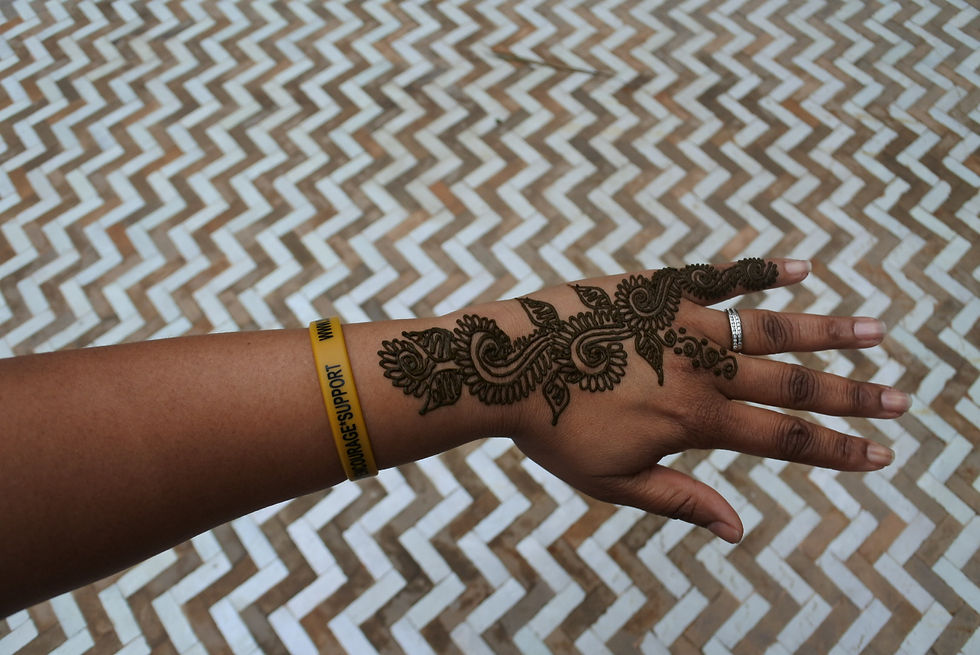The Haïti I knew
- aymexume
- Dec 21, 2020
- 3 min read
Updated: Dec 23, 2020

This morning, my phone reminded me that, around this time, four years ago, I was kicking it in Haiti. I had travelled to attend a friend's wedding and spent an amazing time with friends and family.
My last trip to Haiti dates back to 2018. I'm due for another one.
I spent a good chunk of my life living near downtown Port-au-Prince in what would be considered quartiers populaires. Lively neighbourhoods where lower middle class families mingled with families who were struggling to make ends meet. In hindsight, we were all struggling. Some of us (my family included) were just lucky to have steady jobs and/or support from dyaspora.
We were in the same boat.
Evangelists would wake us up as early as 4:30 in the morning, encouraging us to wake up, as Christ was coming back. My grandmother, like many other residents of these streets, would curse them under her breath. These people roaming the streets at ungodly hours clearly had issues with their beds!
A random, lonely rooster would crow. Other flimsy looking birds would echo his sounds. A raspy melody accompanying the first motions of a new day.
Some of the walls around the yards of our streets were low. We could hear our neighbours start their days. Their voices low as to not disturb others. But some houses were so close that it was impossible not to hear conversations we weren't supposed to be privy to. Sometimes, a window would be carved into the shared wall between two houses. Privacy is a riches the less fortunate can barely afford.
Between 7 and 9 a.m., the streets belonged to vendors. They'd walk around singing the services they offered and products they sold. They'd knock on the gate of frequent customers. From the backyards, where they were busy going about their days, adults—mostly women—would urge their children to stop the vendor while they make their way to the front. I learned from a young age to chit chat with the women selling oranges and the men selling bread so that they would remain patient. My Grann was never really in a hurry.
On the days we needed the services of a shoeshine man, my Grandpa would collect our shoes and place them on the galri. He'd leave the money on the dining table. It was our responsibility to listen for the shoeshine men's traditional bell. But we preferred the service of Ti Bòs: the only shoeshine men who used a stick. He'd use it as a baguette and whack his wooden box. A different sound. I made up a story in my mind: he didn't have enough money to buy a bell. But the sound of wood tapping on wood became his brand.
On the street where my Grann lived for over 25 years, families who lived in a house by themselves were privileged. If you had a legitimate electricity and cable connection, you were privileged. If you had running water in your own house, you were privileged.
In the country's capital city. In the late 1990s.
Children and teenagers with empty gallons and buckets would flood the street. Grann didn't sell water, she gave it freely, but she demanded discipline. No yelling. No fighting. No interfering with her household's peace.
Peace. Another luxury.
Growing up in these neighbourhoods meant to be constantly surrounded by noise. My favourite: neighbours arguing. And, boy, would people argue!
Vendors would curse out customers who didn't want to pay up. Adults would curse out "good for nothing" youths. Girls who used to be best friends and would hurl obscenities at each other. Arguments between boys would turn into fist fights. You didn't need to wait for a friend to explain what happened, the protagonists would go at it in the streets for every one to see and hear. Sometimes, the feuding neighbours lived across the street from each other. They'd stand in front of their respective gates to have their words.
On days like this, Grann would forbid us to listen. But she'd often bring some tea to the neighbour to help calm her down or help with her nerves. I now realize that it was her way to go and get the tea from the source. She would also forbid us to play with or talk to any kid our age who partook in those shenanigans.
We were sheltered.
But we were always aware of our privilege. We were also told that the only difference between us and our less fortunate neighbours was sheer luck. We weren't more than the kid next door.
My family has long left ruelle Vilgrain, a small street nestled between Première Avenue and rue Laraque Première. My mom worked her ass off to move us out of that apartment in rue Lamarre, a few minutes away from Bèlè. But I carry the spirit of community that was once the rule in these vibrant and lively neighbourhoods.




Comments